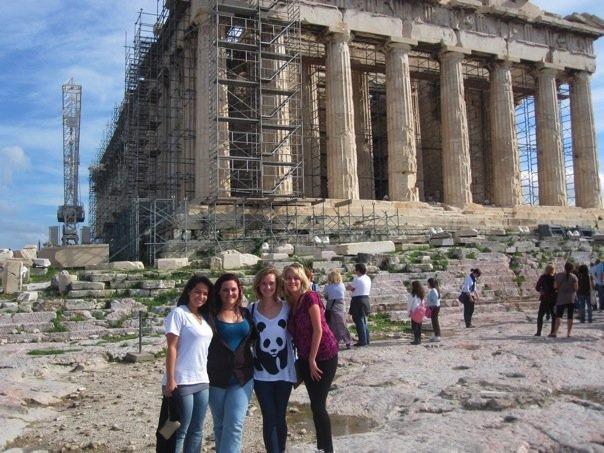Reverse Culture Shock
January 27, 2010
What? No naps in the middle of the day?
Lack of motivation, anger, loneliness, anxiety, and depression; these symptoms may sound familiar to any sleepless, party hard, cram-all-night college student, but for any student that has every studied abroad, you know these are the warning signs of culture shock.
When a student chooses to study abroad, it suddenly becomes the concern of all those involved to make sure they are mentally prepared for what they are getting themselves into. It seems practically inevitable, but in reality, the hype of it all is more stress than the actual culture shock.
However, I will admit that during my semester in Greece, I too, at some point experienced each of these symptoms.
The lack of motivation began the moment I met all the amazing people living in my dorm. Each was an American student, from various places around the States, and each was just as enthusiastic about having an entire semester with no job, no parents and no age restrictions on alcohol, as I was.
The sudden bout of anger occurred during the first week of school was when I realized that I was the only sucker out of my new friends that actually had classes on Fridays.
The loneliness struck when I realized that online video streaming doesn’t work in other countries and I would spend an entire semester without the comfort of my favorite TV shows, my only relief being that Lost is on hiatus until February.
Anxiety slapped me across the face every time I saw my current balance after using an ATM. (Damn the American dollar for its weak international standing!)
The depression was that last symptom I fell victim to. It started about two weeks before my friends and I left Greece, when it suddenly became a priority to spend every moment possible together, because there were so few left. It escalated when the first of my friends stood outside my door to say goodbye; and it became a full-blown mental breakdown by the time I zipped up my suitcases to leave.
It was never the culture shock that concerned me, or that should concern any student studying abroad. It is easy to fall in love with the countries I was living in and visiting, the independence is exhilarating, and the adventure is irresistible.
While studying abroad you will have all the same learning experiences that you would have here in Boston, but with infinitely more life experiences. You have the ability and resources to travel wherever your bank account will take you, and instead of studying Greek Mythology, you can climb to the top of Mount Olympus and hang out with the gods yourself.
In reality, those involved with helping students prepare for studying abroad should not be concerning themselves with culture shock, but rather with reverse culture shock. In my experience, it is much harder to conform to the American ways once you have lived like a European.
In how many locations in Boston can you walk through a strip of outdoor cafes and see hoards of young adults gathered together playing board games, or find elderly men sipping coffee and discussing politics for hours, or stay in a bar or club until six in the morning, or get free desert and wine (not water) with your meals? This is a culture that genuinely enjoys other peoples’ company, savors their meals, sips (not chugs) their alcohol and takes pride in their nationalities. They riot over political issues such as police brutality, and not over the Red Sox winning the World Series.
Plus, they nap in the middle of the day, which is an easy adjustment if you ask me.






